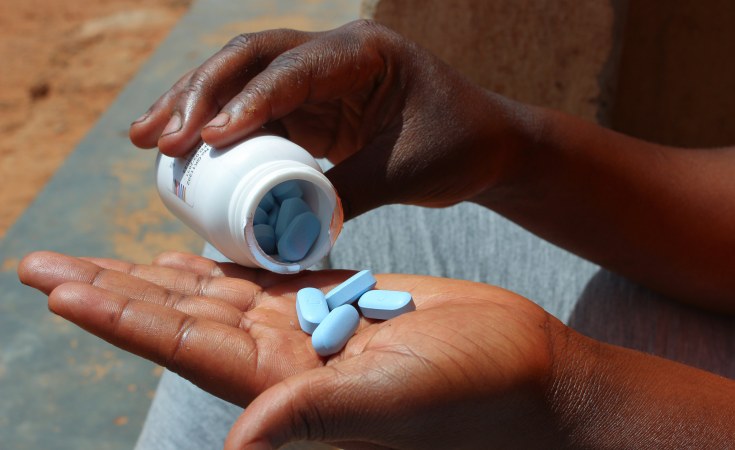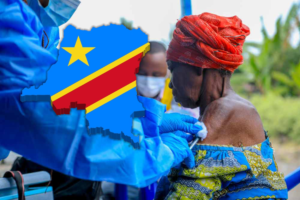Massive Budget Cuts To Throw Kenya’s Health Sector Into Disarray

A document submitted to the National Assembly has revealed an “alarming shortfall” in the budget for key government programs aimed at strengthening the country’s health sector. Some areas to be affected, according to senior health officials, include procurement for HIV/AIDS services and family planning and immunization programs.
With HIV/AIDS program already reeling from U.S. funding cuts, analysts said a reduction in government spending in the sector will affect critical services to thousands of people living with the disease in the country.
The flagship national insurance scheme, enacted in 2023, will also be hit hard by the budget shortfall.
Nairobi — The rollout of the Social Health Insurance Fund (SHIF), procurement of essential HIV and family planning commodities, and payment for Community Health Promoter (CHP) kits risk stalling following a Sh161 billion budget cut in the Ministry of Health’s 2025/2026 allocation.
Key government programmes aimed at strengthening the country’s health system, including vaccine production, the Managed Equipment Services programme, and operations of semi-autonomous government agencies (SAGAs), are also facing significant funding gaps, threatening to paralyze service delivery.
The alarming shortfall was revealed in budget documents tabled before the National Assembly’s Departmental Committee on Health by Medical Services Principal Secretary Dr. Ouma Oluga.
The documents show that the Ministry of Health had requested Sh426.8 billion,Sh350.6 billion for recurrent expenditure and Sh76.2 billion for development but was only allocated Sh105.4 billion.
This reflects a drastic reduction of Sh67.2 billion from what was initially indicated in the Budget Policy Statement.
“Chair and Honourable Members, the Budget Estimates have provided funding towards key strategic interventions in the health sector for service delivery,” said Oluga.
“However, there are key areas that are unfunded or underfunded, and this is expected to affect service delivery.”
According to Oluga, some of the most affected areas include the procurement of HIV/AIDS, family planning and immunization commodities, historical underfunding of SAGA staff salaries, human vaccine production, and key presidential directive projects.
The SHIF rollout, a flagship programme under the recently enacted Social Health Insurance Act, 2023, has been hit particularly hard.
The fund, alongside the Primary Health Care Fund and the Emergency, Chronic and Critical Illness Fund established under new health legislation faces a staggering shortfall of Sh145 billion.
According to the Ministry’s projections, the Primary Health Care Fund alone requires Sh61 billion but was only allocated Sh13 billion, leaving a funding gap of Sh48 billion. Similarly, the Emergency, Chronic and Critical Illness Fund needs Sh107 billion but received just Sh10 billion, creating a deficit of Sh97 billion.
The procurement of essential commodities has also been severely compromised. The department reported a Sh4.27 billion shortfall for the purchase of life-saving vaccines and reproductive health supplies.
This includes Sh2 billion for traditional vaccines, Sh1.69 billion for Gavi co-financing which is mandatory under global health agreements Sh585 million for the Vaccine Independence Initiative (VII) payment to UNICEF, and Sh2.88 billion for family planning commodities.
The HIV/AIDS programme, already reeling from a freeze in U.S. government funding, now requires Sh33.9 billion from the government to stay afloat.
The ministry warns that without this funding, critical services to thousands of people living with HIV could be disrupted.
“The State Department further requests that these funds be ring-fenced in the FY 2025/2026 and the Medium-Term Budget, and further be exempted from any budgetary cuts in supplementary estimates,” the documents read.
“The budget requirement for procurement of strategic commodities under HIV, Family Planning, and Vaccines programmes has undergone a perpetual financial rationalization over the years during supplementary estimates, affecting the achievement of set targets. Further, there has been a steady reduction in donor funding for these programmes and therefore calls for the need to increase Government of Kenya counterpart funding.”
Also at risk is the government’s promise to equip and remunerate thousands of Community Health Promoters (CHPs). The programme received just Sh375 million against a requirement of Sh4 billion, leaving a Sh3 billion deficit.
The ministry warned that this gap has created a pending bill that threatens the entire community health strategy
“During the financial year 2024/2025, the State Department was allocated Kshs. 375 million against a funding requirement of Kshs. 4 billion, resulting in a deficit of Kshs. 3 billion as a pending bill. The State Department for Medical Services is requesting for an additional funding of Kshs. 3 billion to settle the balance and clear the above pending bill,” the ministry stated.
Major national referral institutions, including Kenyatta National Hospital (KNH), Moi Teaching and Referral Hospital (MTRH), Kenyatta University Teaching, Referral & Research Hospital (KUTRRH), and the Kenya Medical Research Institute (KEMRI), are also facing a combined funding shortfall of Sh6.1 billion.
The ministry has further reported a Sh500 million deficit in personal emoluments, resulting in intermittent service disruptions, and a Sh2.5 billion gap in funding for health systems restructuring and process re-engineering.









